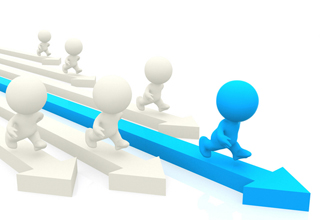Patience is a virtue, but it doesn’t work when it comes to reality. It is quite obvious no web users will be going wait to visit your website that takes a long time to load. Every visitor wants to land on a web portal with high loading speed and on contrary, try to avoid a site responds slowly. The reason is simple – visitors of website lose their patience and quickly drive to next web portal (may be your competitors site) and never like to come back on your site.
When talking about website, loading speed is the most noteworthy aspect of the website that plays major role in making your portal popular among targeted set of visitors. A fast responding website automatically becomes user’s first choice. Every person captivated with speedy websites and hardly come back to website which takes more time to load. Today, we are going to learn here some best practices useful for decreasing loading time of website and speeding up web pages response time. Let’s get started:
Tip #1: Cache your web pages and database queries in case you are using Content Management System (CMS) for generating website pages dynamically. By this practice, you can easily reduce burden of your server which ultimately speed up web-pages rendering time.
Tip #2: You should always place JavaScript and CSS in external files to make your website codes easy-to-update and easy-to-manage. The main intend behind doing this is simple both JavaScript and CSS get downloaded together whenever HTML document is requested. All this ultimately increase HTML document size.
Tip #3: Optimization of images is another best practice through which you can speed-up website loading time. Different file formats of images can adversely affect response time of web portal. GIF, JPEG and PNG are ideal formats. Try to avoid using larger size images.
Tip #4: Compress website content to reduce loading time of your website. With the help of HTTP compression, the data of your web page will automatically go in a single smaller file. Apart from that, you can even optimize and compress JavaScript and CSS files and hereby, minifying the source code.
Take these essential tips into consideration to improve speed of your website by simply reducing your web page loading times.
Posted By: CSSChopper Team




